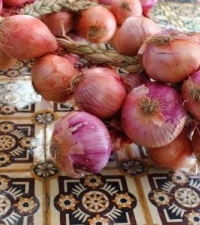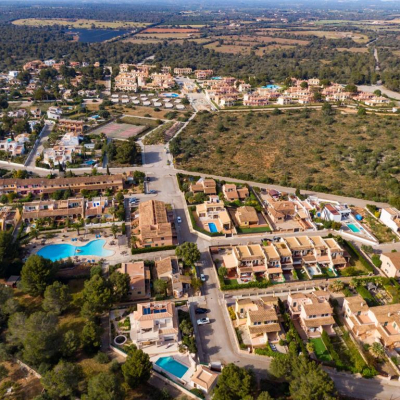Grocery Shopping in Spain

Where to Buy: The butcher, the baker and the candlestick maker
During the times of Dictator Franco, large supermarkets didn't exist in Spain. Since the country was self-sufficient and did not allow imports, small, neighborhood stores provided patrons with everything they needed, making shopping an all-day odyssey. These sorts of shops still exist today, though most Spaniards choose to shop at supermarkets.
Supermercado – due to convenience and lower pricing points, Spaniards often shop at supermarkets. Here, you'll find every product on your list, including drug store items. Be aware that some shops, like Alcampo and Carrefour, are large hypermarkets. Many neighborhood supermarkets are small and have less variety of brands and products.
Hípermercados are combination grocery store and home goods stores – virtually everything can be found here. Popular hypermarkets are Alcampo, Carrefour, HíperCor and Eroski.
Panadería – The bakers. Here, you'll find freshly baked bread and, on occasion, baking supplies. Bread varieties vary greatly by region, though all are sold by weight in grams. Gluten-free bakeries are not common.
Carnicería – The butcher. Butchers in Spain offer high-quality meat products, particularly from pigs, cows, sheep and sometimes poultry. Prices are typically per kilo, and you'll have to ask for a specific cut. Carniceros, or butchers, are often willing to pre-order special items, according to availability.
Pescadería – The fishmongers. Due to Spain's geographic location, fish and seafood are a staple of the local diet. Fishmonger's offer a large variety of fresh seafood daily (except for Mondays). Popular options include gambas (prawns), bacalao (cod) and atún (tuna), and are sold by the kilo. Fried fish can be purchased at freidurías. Strangely enough, the biggest consumption of seafood in Spain is in Castilla y León, a landlocked-province sandwiched between Madrid and Portugal!
Frutería – The greengrocers. Spain is often called the fruit basket of Europe, as the climate and Spain's history of being self-sufficient lend to mass production of produce, particularly along the Mediterranean coast. Produce can be found at fruterías, which sell in-season fruit by the kilo. Apples, bananas, lettuce, tomatoes, cucumbers and potatoes can be found year-round, while strawberries (April-May), melons (summer), grapes (summer) and oranges (winter) are only available during their determined seasons.
Ultramarinos – Canned goods shop. Ultramarinos are a traditional type of shop that was popular during war time for their selection of canned good and conserves. They remain a romantic part of any historical quarter and stock conserves, snack items and sweets, as well as local food products.
Alimentación – Convenience stores. These types of shops are typically owned by foreigners and carry a wide array of products, from food to drink, alcohol to small gift items. This is a convenient shop for Sundays, during siesta, or for just one or two items. Prices are set by the proprietor, and are sometimes more expensive than traditional shops.
Droguería – The drug store. These stores tend to stock household goods, such as cleaning supplies and beauty products. These items can be found at most supermarkets, as well.
Hours for these establishments will depend largely on the proprietor's wishes, but they are generally open from 8:00 – 14:00, close for the siesta hours and re-open in the evenings from about 17:00 – 20:00. It's not uncommon for Alimentaciones to be open during siesta or on Sundays, and bakeries generally open on Sunday mornings until 13:00.
Markets
 Many neighborhoods throughout Spain hold a market everyday but Sundays, typically until 14:00. These rows of stalls are hosted in a fixed location, typically a gallery hall, and peddle produce, meat, fish and spices. La Boquería in Barcelona and the Mercado de Calle Feria in Seville are among the most renowned. New additions to the scene are gourmet markets, which cater to expensive tastes.
Many neighborhoods throughout Spain hold a market everyday but Sundays, typically until 14:00. These rows of stalls are hosted in a fixed location, typically a gallery hall, and peddle produce, meat, fish and spices. La Boquería in Barcelona and the Mercado de Calle Feria in Seville are among the most renowned. New additions to the scene are gourmet markets, which cater to expensive tastes.
Spain's most famous open air market is El Rastro, a weekly flea market in Madrid. Open Sundays until about 15:00 at Metro Embajadores, stalls are most visited in the morning before 11:00. Most of the products are secondhand, and some food vendors are available.
Foodie fairs and Farmer's Markets are growing in popularity, as well. The Cámara Agraria hosts a market day the first Sunday of each month at Metro Lago/Puerta del Ángel. A fee of 1€ for a wine glass will allow samplings from local artisans – cheese, wine, butchered meat and everything in between.
Supermarket Brands
 Supermarkets are usually open between 9:00 and 21:00, sometimes later, Monday thru Saturday and closed on major holidays. Major brands include Mercadona (which stocks a wide selection of gluten-free products), Dia, Lidl and SuperSol.
Supermarkets are usually open between 9:00 and 21:00, sometimes later, Monday thru Saturday and closed on major holidays. Major brands include Mercadona (which stocks a wide selection of gluten-free products), Dia, Lidl and SuperSol.
Regional grocery stores are another alternative to the big chains and carry a greater variety of regional products. Look for Gadis in the north, El Arbol in the west and M.A.S in the South.
Many large supermarket chains, like Mercadona, Dia and Alcampo, offer home delivery within a specified geographic area for a small fee. Many specialty shops online will also ship.
Prices and Other Specifics
Prices will greatly vary by the establishment, with smaller mom and pop stores often being more expensive. A 4% VAT tax for food products is included in the price at most establishments. Plastic bags for purchase at the check-out (0,03€ - 0,05€), but it's common to see patrons wheeling cloth bags on wheels called carritos.
Spain produces much of its own livestock, dairy and produce, keeping prices low. Imported items can be found at specialty shops and large supermarket chains at a higher price. Keep in mind that additives are illegal, so fruit that is out of season will be impossible to find.
Alcohol can only be purchased until 22:00 in all of Spain.
By Cat Gaa, who left her native Chicago five years ago to live in the olive groves of Andalusia. Residing in Seville, she teaches first grade at a private school, but all she wants to really do is write.
- My Life Abroad -
A selection of expat stories

"A fun compulsive read!"
J. Matcham, Amazon
"I strongly advise people ready to live abroad to read this book!"
Patrice, Amazon

 Getting connected: Internet in Spain
Getting connected: Internet in Spain NordVPN
NordVPN Embassies and Consulates in Spain
Embassies and Consulates in Spain Why using an alternative broker for large money transfers
Why using an alternative broker for large money transfers